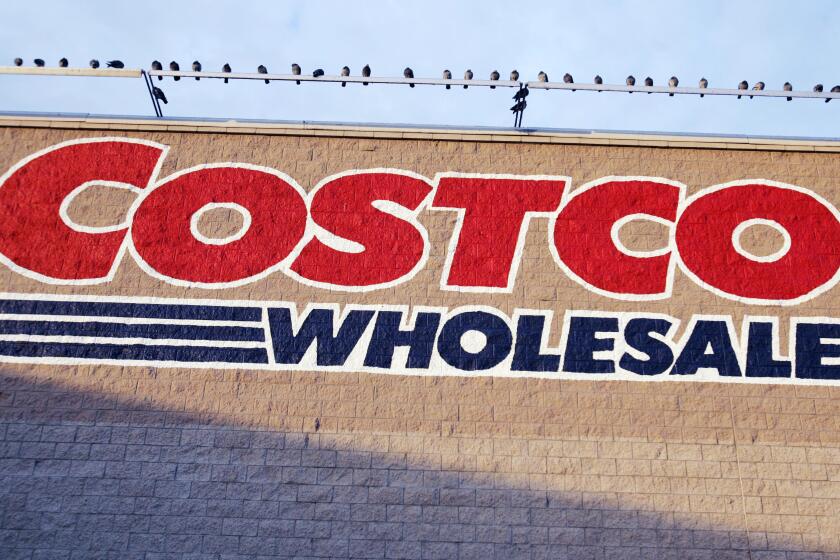Wal-Mart plans green ratings for its products
If they green it, will we shop?
Wal-Mart Stores Inc. officially unveiled its widely rumored plan Thursday to slap “eco-ratings” on the hundreds of thousands of products in its stores. The world’s largest retailer is betting that shoppers increasingly will care how green their purchases are -- and maybe even pay more for environmentally friendly merchandise.
The green ratings will take years to show up on the chain’s shelves.
In the first phase of its three-part initiative, the Bentonville, Ark., retail giant will ask its more than 100,000 suppliers questions about their business practices, such as the amount of water they use in producing items and the locations of their factories. The goal is to develop a green index for Wal-Mart products similar to the nutrition label found on the packaging for food products.
“Customers want products that are more efficient, that last longer and perform better,” Wal-Mart Chief Executive Mike Duke said in a statement. “And increasingly they want information about the entire life cycle of a product so they can feel good about buying it. . . . We do not see this as a trend that will fade.”
Experts have said the ambitious program, details of which had been trickling out for days on the Web, probably will spur suppliers to redesign products to reduce their environmental impact and improve their scores. And that could cause broad changes in manufacturing.
Many of Wal-Mart’s suppliers already have taken their own steps to become more eco-friendly.
At Levi Strauss & Co., Michael Kobori, vice president of social and environmental sustainability, said the jeans maker has set water-quality standards for its suppliers and now recommends that its jeans be washed in cold water to save energy.
Kobori said the San Francisco company was pleased with Wal-Mart’s new initiative and called it the next logical step to improve the industry.
“It sends the right signal to the marketplace and the right signal to the supply chain that sustainability is important,” he said. “We hope it changes the game.”
--
More to Read
Inside the business of entertainment
The Wide Shot brings you news, analysis and insights on everything from streaming wars to production — and what it all means for the future.
You may occasionally receive promotional content from the Los Angeles Times.










